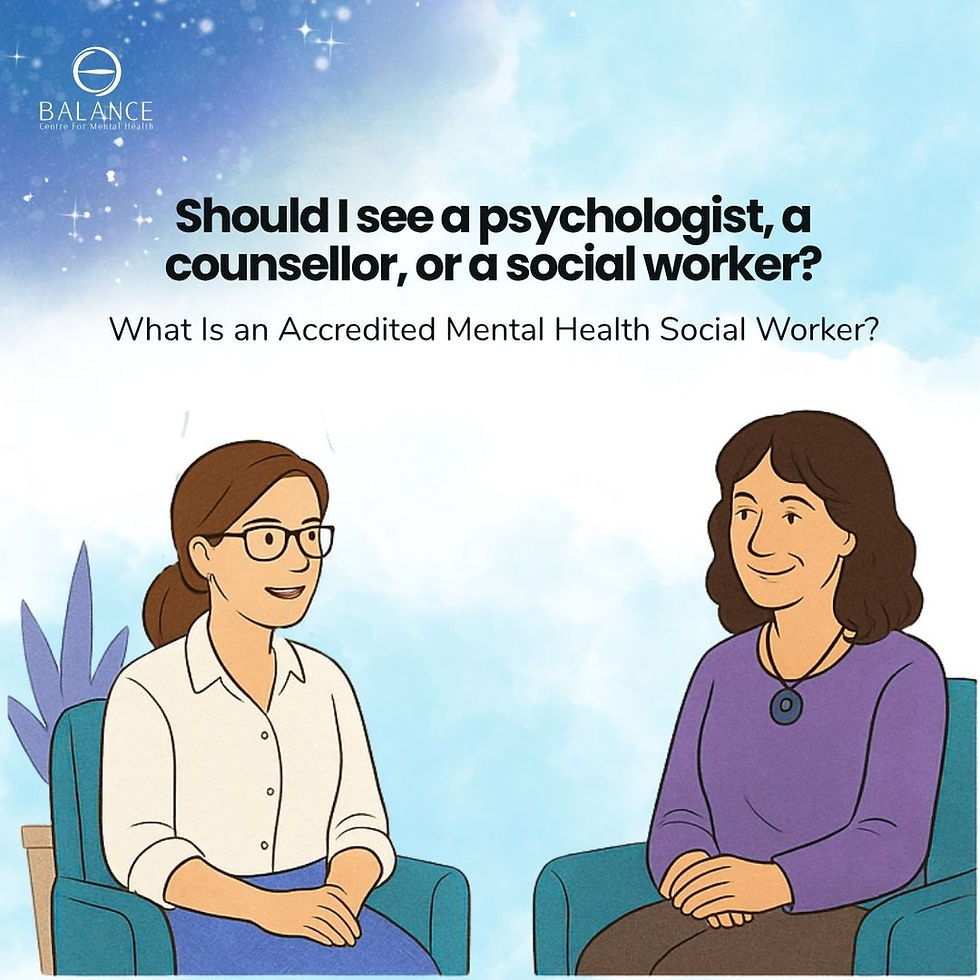5 ways to regulate your emotions with Mindfulness
- Teena Mogler
- Jul 26, 2023
- 3 min read
Updated: Sep 29, 2023
Mindfulness is a practice that can help us become more aware of our thoughts and emotions. When we're able to observe our feelings without judgement, we can start to see patterns and better understand how to manage them. Here are 5 ways that you can use mindfulness to regulate your emotions:
1. Accept your feelings without judgement
2. Be aware of your thoughts and feelings
3. Accept your emotions
4. Let go of judgment
5. Practice self-compassion

Accept your feelings without judgement
Life can often throw us curveballs we weren’t expecting. These hard times may leave us feeling like something isn't right, which can lead to a range of emotions that can be difficult to acknowledge and let go of. It is important to acknowledge whatever you are feeling and accept it without judgement. Difficult emotions such as anxiety and frustration are a natural part of life, but by accepting these moments rather than pushing them away we create positive relationships with ourselves that enable personal growth and development. Allowing yourself freedom from judgement when it comes to your feelings helps to foster healthier coping skills for the things that life throws our way.

Be aware of your thoughts and feelings
Becoming aware of your thoughts and feelings is essential for understanding who you are and gaining insight into why you react in certain ways. Taking the time to reflect on what emotions you've been experiencing, or why your mind races when a particular topic comes up, may give you some awareness of trends in your thinking that can be positive or problematic. By being aware of your thoughts and feelings, you can become more mindful and increase your overall well-being. This self-reflection is a great way to get to know yourself better.

Accept your emotions
Mindfulness is an important skill to have in order to learn how to accept your emotions. Mindfully acknowledging your emotions means taking a step back and recognizing your current thoughts, without judgment or reaction. It gives you the freedom and opportunity to observe the emotion without suppressing or escalating it; neither resisting nor pushing away. Accepting and processing your emotions, rather than pushing them aside, can lead to healthier ways of responding to issues in our lives. Mindfulness can help us stay aware while we work through difficult experiences and true acceptance of our emotions can help bring peace to ourselves as well as those around us.

Let go of judgment
Mindfulness is a helpful practice when trying to let go of judgment. When we are mindful, we pay attention to the present moment in an open and respectful way; it helps us become aware of our own emotions and those of the people around us. Mindfulness teaches us how to acknowledge judgments without getting stuck on them or allowing them to lead to animosity. Mindful thinking encourages understanding and appreciation for differences, which helps break down barriers that judgement can create in relationships and communities. Letting go of judgement starts with becoming more conscious of our opinions, recognizing the impact they have on our lives, and learning how to approach uncertain situations with compassion instead of criticism.

Practice self-compassion
Incorporating mindfulness into our lives is one of the most powerful strategies for improving our mental health and well-being. Engaging in mindfulness helps us to recognize and release difficult emotions in a healthy way. Practising self-compassion using mindfulness allows us to regulate our emotions, be better equipped for stress, and have greater self-confidence. Through mindfulness, we can begin to observe discomfort objectively, develop an attitude of kind acceptance towards ourselves, and ultimately cultivate greater peace of mind. Working on our mindfulness skills can take time and practice, but it's worth it in order to reap the many benefits of developing self-compassion.
Mindfulness is about living in the present moment and being aware of your thoughts, feelings, and emotions without judgement. It can be practised in everyday life by letting go of judgment, accepting your emotions, and being aware of your thoughts and feelings. By practising mindfulness, you can learn to control your reactions to stressful situations and improve your overall mental well-being. How do you practice Mindfulness in your everyday life?




Comments